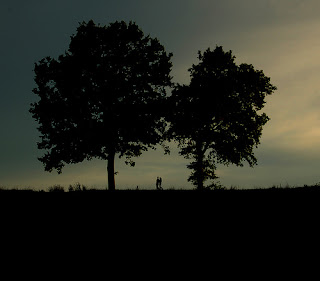Being Invisible = Being Ignored
 Topics about gays and lesbians have always piqued my interest for many reasons. One of the many obvious ones is, well, I have quite a few gay and lesbians friends, who are smart and talented, and whom I'm really proud of.
Topics about gays and lesbians have always piqued my interest for many reasons. One of the many obvious ones is, well, I have quite a few gay and lesbians friends, who are smart and talented, and whom I'm really proud of.Recently, I've read this very interesting article about homosexuals, and the first few paragraphs caught my attention. I'd like to strongly urge you to take a few moments to read it.
"Bob McCoy is a youthful, active 78-year-old. He sings in his church choir, takes a weekly computer class, and regularly attends social gatherings organized by a gay senior citizens group in Brooklyn, N.Y., where he lives. But McCoy worries about a day when he can no longer care for himself: he has no close family, no partner, and he's outlived most of his friends. "I'm used to having friends I can call up and say, 'Let's go to [a movie],'" he says. "But now there's nobody to call."
Newly engaged, Jim Fetterman, 62, and Ilde Gonzalez-Rivera, 56, look forward to growing old together at their home in Queens, N.Y., where they share a garden and a green Cadillac. But the couple isn't sure if or when they'll be able to marry. Their house is in Rivera's name, but because the couple can't legally wed in New York, Fetterman won't automatically inherit it, should his partner die. And even though they are registered domestic partners in New York City, neither man will have access to the other's Social Security, because the federal government doesn't recognize their relationship. "It's not something we like to think about, but there's a certain amount of anxiety that comes with not having those things," says Fetterman.
These are typical faces of the gay and aging—a growing population often overlooked by mainstream advocates. Gerontologists haven't traditionally viewed sexual orientation as relevant to their work—and, according to a study by the National Gay and Lesbian Task Force, most national health surveys of elderly citizens fail to assess sexual orientation. But gay seniors confront unique challenges: they're twice as likely as straights to live alone, and 10 times less likely to have a caretaker should they fall ill. Older gay men are at high risk for HIV, and many suffer the psychological effects of losing friends to the AIDS crisis. Many face discrimination in medical and social services, and on top of it all, they're less likely to have health insurance: one survey, by the Williams Institute on Sexual Orientation Law, at UCLA, estimates that gay seniors are half as likely to have coverage as their straight counterparts."
Isn't that saddening? Okay, so I don't know much about laws on homosexuals or what "sexuality" really means, or what the "real" issues are behind sexuality. But what I know for sure is, in many ways, homosexuals have long been discriminated and unfairly treated, and I feel utterly ashamed by it. We're all humans and we all have our rights to live the life we deserve in this world.
I'll be interviewing a priest on same sex marriage soon. If you have any questions you'd like to ask him, feel free to email them to me, or just post it up on the "comment" section below.
If you want to read the rest of the article, it's at http://www.newsweek.com/id/159509



Comments